
Tierra del Fuego is an archipelago off the southernmost tip of the South American mainland, across the Strait of Magellan. The archipelago consists of the main island, Isla Grande de Tierra del Fuego, with an area of 48,100 km2 (18,572 sq mi), and a group of many islands, including Cape Horn and Diego Ramírez Islands. Tierra del Fuego is divided between Chile and Argentina, with the latter controlling the eastern half of the main island and the former the western half plus the islands south of Beagle Channel. The southernmost extent of the archipelago is at about latitude 55°S.

Pedro Calderón de la Barca y Barreda González de Henao Ruiz de Blasco y Riaño, usually referred as Pedro Calderón de la Barca, was a dramatist, poet, writer and a knight of the Order of Santiago, known primarily for being one of the most distinguished Baroque writers of the Spanish Golden Age, especially for its theater. During certain periods of his life he served as soldier and a Roman Catholic priest. Born when the Spanish Golden Age theatre was being defined by Lope de Vega, he developed it further, his work being regarded as the culmination of the Spanish Baroque theatre. As such, he is regarded as one of Spain's foremost dramatists and one of the finest playwrights of world literature.

Leopoldo Antonio Lugones Argüello was an Argentine poet, essayist, novelist, playwright, historian, professor, translator, biographer, philologist, theologian, diplomat, politician and journalist. His poetic writings are often considered to be the founding works of Spanish-language modern poetry. His short stories made him a crucial precursor and also a pioneer of both the fantastic and science fiction literature in Argentina.
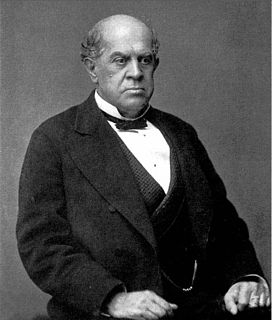
Domingo Faustino Sarmiento was an Argentine activist, intellectual, writer, statesman and the seventh President of Argentina. His writing spanned a wide range of genres and topics, from journalism to autobiography, to political philosophy and history. He was a member of a group of intellectuals, known as the Generation of 1837, who had a great influence on 19th-century Argentina. He was particularly concerned with educational issues and was also an important influence on the region's literature.

The Mapuche are a group of indigenous inhabitants of present-day south-central Chile and southwestern Argentina, including parts of present-day Patagonia. The collective term refers to a wide-ranging ethnicity composed of various groups who shared a common social, religious, and economic structure, as well as a common linguistic heritage as Mapudungun speakers. Their influence once extended from Aconcagua Valley to Chiloé Archipelago and later spread eastward to Puelmapu, a land comprising part of the Argentine pampa and Patagonia. Today the collective group makes up over 80% of the indigenous peoples in Chile, and about 9% of the total Chilean population. The Mapuche are particularly concentrated in the Araucanía region. Many have migrated from rural areas to the cities of Santiago and Buenos Aires for economic opportunities.
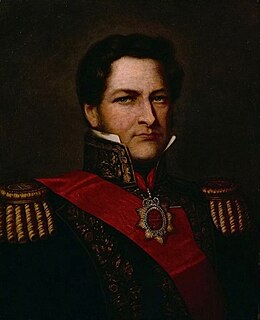
Juan Manuel de Rosas, nicknamed "Restorer of the Laws", was a politician and army officer who ruled Buenos Aires Province and briefly the Argentine Confederation. Although born into a wealthy family, Rosas independently amassed a personal fortune, acquiring large tracts of land in the process. Rosas enlisted his workers in a private militia, as was common for rural proprietors, and took part in the disputes that led to numerous civil wars in his country. Victorious in warfare, personally influential, and with vast landholdings and a loyal private army, Rosas became a caudillo, as provincial warlords in the region were known. He eventually reached the rank of brigadier general, the highest in the Argentine Army, and became the undisputed leader of the Federalist Party.

Ernesto Sabato was an Argentine novelist, essayist, painter and physicist. According to the BBC he "won some of the most prestigious prizes in Hispanic literature" and "became very influential in the literary world throughout Latin America". Upon his death El País dubbed him the "last classic writer in Argentine literature".
Ángel María Bautista Castro y Argiz was the father of Cuban leaders Fidel and Raúl Castro.

Merlo is a partido of Buenos Aires Province, Argentina. It is located in Greater Buenos Aires, Argentina, west of the city of Buenos Aires. Its capital is the city of Merlo.

The Aónikenk people, also referred to by the exonym Tehuelche, are an indigenous people from Patagonia in South America, with existing members of the group currently residing in the southern Argentina-Chile borders.
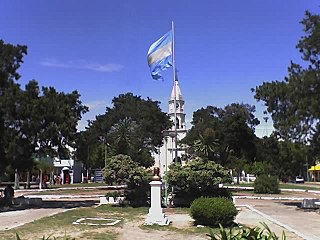
Merlo is the head town of the eponymous partido of Merlo and seat of the municipal government, located in the Greater Buenos Aires urban area of Buenos Aires Province, Argentina.
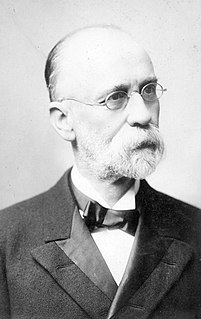
Ernesto Carlos Tornquist was an Argentinian entrepreneur and businessman, considered to be one of the most important entrepreneurs in Argentina at the end of the 19th century. The diversified business empire he created played a key role in helping to link Argentina with the trading and financial systems of the first world. Amongst many other achievements, he founded the Tornquist Bank, the Plaza Hotel in Buenos Aires, the partido of Tornquist and Tornquist its main city, in the south of Buenos Aires Province.
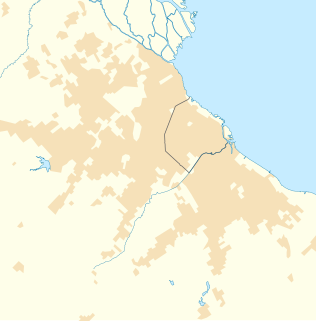
Llavallol is a district of Lomas de Zamora Partido in Buenos Aires Province, Argentina. It forms part of the Greater Buenos Aires urban conurbation.

Cliza is a small town in the Cochabamba Department, Bolivia. It is the capital of the Germán Jordán Province and the Cliza Municipality. Along with Punata, Cliza is the major city in the valle alto of the Cochabamba Department.

Salvador María del Carril was a prominent Argentine jurist and policy-maker, as well as his country's first Vice President.
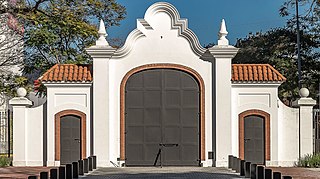
The Quinta presidencial de Olivos, also known as Quinta de Olivos, is an architectural landmark in the north side Buenos Aires suburb of Olivos and the official residence of the President of Argentina. It is one of the President's official residences.
The Freemen of the South were belligerents in an 1839 rebellion in south Buenos Aires province, Argentina against Federalist Governor Juan Manuel de Rosas. A mixture of disgruntled ranchers and Unitarian revolutionaries, the Freemen briefly took control of Dolores, Chascomús and Tandil, and expected to join forces with General Juan Lavalle, who was to lead an army from Uruguay. The rebellion was ultimately defeated at the Battle of Chascomús, and Rosas remained in power in Buenos Aires.

Manuel Gutiérrez de la Concha e Irigoyen, Marquis of the Duero, was a 19th-century Spanish military man and Liberal-Moderate politician, noted for opposing the Carlist rebellions. He was born in Córdoba del Tucumán, Viceroyalty of the Río de la Plata, on 3 April 1808, and died at Monte Muro, Navarre, on 27 June 1874.

Ernest Rouquaud (1822-1907) was a French trader, settler and colonizer of the Patagonia Argentina. In 1871 he obtained the concession of the Argentine Government in to found a colony in Santa Cruz Province.

Agustín Wright (1748-1817) was an Argentine merchant, military man and politician, who held various honorary positions in Buenos Aires, including that of mayor. He founded the first "saladero" establishment in Buenos Aires Province.

















